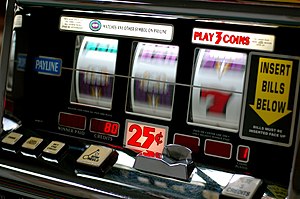As jurisdictions across the state struggle to differentiate between legal practices and illegal gambling, Rock Hill officials are firming up their ban on gambling and putting the public “even more on notice” about the city’s stance on gambling machines.
“They’re not welcome in Rock Hill,” said city attorney Paul Dillingham, after the Rock Hill City Council unanimously agreed to approve new, sharper definitions to its gambling law.
The purpose is to ward off anyone who might try to open facilities or operate machines for gambling in the city. The changes will need a second approval before taking effect.
Gambling machines are already illegal in the cityand elsewhere in the state, officials say.
The changes to the law come about not because there have been serious problems with gambling machines in Rock Hill, city officials say, but because efforts around the state are mounting to open gaming parlors and to convince law enforcement and the courts that sweepstakes machines are legal exceptions to the state’s ban on video poker.
Law enforcement across the state have reported a resurgence of video gaming machines.
In York County, the Catawba Indian Nation, the state’s only federally recognized tribe, relaunched an effort to push the state to recognize what tribal leaders see as their right to open a casino on the reservation in eastern York County. This year they sued state officials. Local law enforcement balked, and a judge ruled against the tribe.
Mayor Doug Echols briefly commented before the council vote that he’d read an article in a North Carolina newspaper about the “proliferation of (video gaming parlors) all over the state.”
After the meeting, Dillingham said “there seems to be some interest in locating these types of businesses in our area, so we wanted to make it doubly clear in our ordinance that sweepstakes gambling and any type of gambling is illegal.”
Gambling parlors often seek business permits under the guise of Internet-type uses, then claim to be operating under other uses, he said.
Occasionally, the city has had similar requests, Dillingham said.
“We feel we could have denied the permits in any event, but we wanted to put the ordinance on the books to make it doubly clear,” he said.
New definitions
The changes add a section to the city’s gambling law to include a definition of “simulated gambling device.”
The definition covers any device that simulates gaming, takes money, cards, tokens or any other “object” as a way of activating the game, and offers a payoff.
Marvin Brown, commander of York County’s multijurisdictional drug enforcement unit, which also enforces gambling laws in the city and York County, said strengthening existing gambling laws will help his unit’s efforts.
His team recently confiscated gambling machines in the county, including 10 from a bar in Clover. The last big sweep was in 2006, when 500 machines were collected from area businesses, he said.
Brown said most of the time, after officers tell business owners they’re operating illegal devices, the business owners will remove them voluntarily.
The problem facing law enforcement is a new type of machine. Marketed as “sweepstakes” devices, the machines sell products, such as phone cards or Internet services, and provide an opportunity to win prizes.
Not everyone agrees they’re illegal, Brown said.
Magistrate judges across the state are coming down on different sides of the issue, which isn’t fair to law enforcement or business owners, he said.
“It needs to go up to a higher court,” he said.














0 comments:
Post a Comment